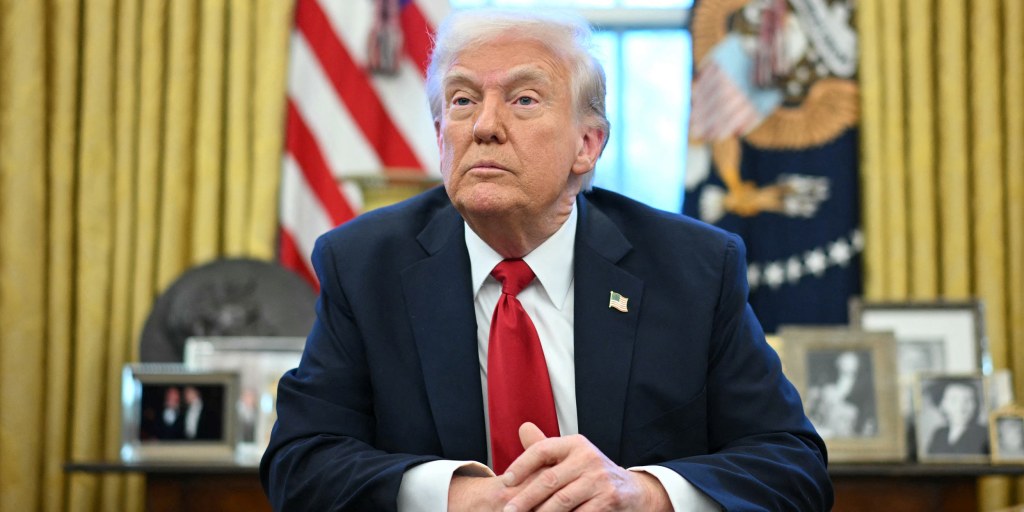
Stock Market Strained as Trump Tariffs and TikTok Deadline Loom
The economic landscape is undergoing significant shifts as the stock market braces itself for impending changes. With Trump-era tariffs and the ticking clock on TikTok creating waves of uncertainty, market participants are keeping a keen eye on developments that could shape the future. As political and economic forces collide, it's vital to understand their potential impact on businesses, consumers, and investors alike.
Trump Tariffs: A Double-Edged Sword for the Economy
Tariffs imposed during Donald Trump's presidency have been a contentious issue, with advocates arguing they protect domestic industries, while critics highlight their potential to stifle international trade. These tariffs targeted various goods from China and beyond, leading to increased costs for manufacturers and consumers.
As the deadlines for these tariffs approach, businesses are back at the drawing board, trying to assess how an extension or elimination would impact their bottom lines. The most affected sectors, including technology, agriculture, and manufacturing, are preparing for potential turbulence. The tariffs have created a domino effect, affecting supply chains and causing price fluctuations that ripple across the economy.
TikTok Deadline: Navigating the Digital Wave
While tariffs dominate economic discourse, the looming deadline for TikTok has caught the attention of tech enthusiasts and investors. The Chinese-owned social media giant has been under scrutiny over data privacy concerns and its potential influence on U.S. audiences. Calls to ban or force the sale of TikTok's U.S. operations have heightened tensions between the tech industry and governmental authorities.
Tech companies, already grappling with regulatory pressures, view the TikTok situation as a litmus test for the future of international tech relations. An eventual decision on TikTok could set a precedent, determining the extent of governmental control over foreign-owned digital platforms in the United States. Employees and supporters of TikTok argue for a balanced approach to regulation, one that does not stifle innovation but ensures data security and national interests are safeguarded.
The Ripple Effect on Investors and Consumers
With these impending deadlines, investors are treading cautiously. The stock market, which thrives on certainty and predictability, is reacting to the mixed signals emanating from both domestic and international fronts. Markets despise uncertainty. The fluctuating whispers of potential extensions or resolutions to the tariff and TikTok situations are enough to keep market analysts on their toes.
Individual consumers also stand at the crossroads. The average shopper may not immediately connect their favorite product with the intricacies of tariffs or tech regulations, but the impacts are tangible. Increased product prices, reduced availability of goods, or a potential change in social media functionalities can shape consumer behavior and spending patterns.
Strategic Responses by Businesses
Companies are adopting proactive strategies to mitigate potential impacts from these geopolitical dynamics. Global supply chains are being reevaluated, with businesses opting to explore alternative sourcing options or reshoring their operations to minimize disruptions. In the tech sphere, firms are investing in robust data security measures to meet burgeoning regulatory demands, ensuring they remain competitive while safeguarding user trust.
Corporate leaders are also seeking dialogues with policymakers to emphasize industry perspectives, hoping to influence outcomes favorably. Tailored communication and advocacy are becoming the norm as businesses navigate these complex environments.
The Road Ahead: Preparing for Market Dynamics
As the deadlines loom, what lies ahead remains shrouded in uncertainty. However, several scenarios could unfold depending on the outcomes of the tariffs and TikTok deliberations. A rollback of tariffs might offer some relief to industries currently burdened with inflated costs, potentially stimulating further economic growth.
Similarly, a resolution allowing TikTok to continue operations in alignment with U.S. regulations could encourage balance between economic interests and national security concerns. On the other hand, escalation in these areas might further strain international relations and market dynamics.
Conclusion: Adapting to Evolutions in Economic and Tech Landscapes
In times of heightened uncertainty, the onus is on businesses, consumers, and policymakers to remain adaptable and alert. The stock market, while often perceived as a barometer of economic stability, reflects only one facet of a complex global ecosystem. As we stand on the precipice of significant change, understanding the interconnections between politics, economy, and technology becomes essential.
The coming weeks will reveal much about the direction in which these issues will head. The ramifications for global trade, technology, and investment strategies are profound. By maintaining a sense of awareness and foresight, stakeholders can navigate these turbulent waters, positioning themselves advantageously for whatever the future holds. The economic landscape continues to evolve, and all eyes are now on the resolutions set to unfold.


